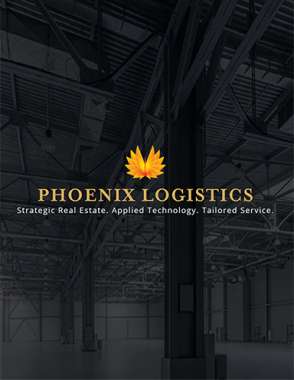How to Find a Warehouse in 2022

With industrial real estate demand expected to far outweigh supply for a few more years at a minimum, finding new warehouse space can feel pretty intimidating.
Finding New Warehouse Space
Warehouse vacancy in the United States reached 4.1% in the first quarter of 2022 and is even lower in major markets and near ports.
With industrial real estate demand expected to far outweigh supply for a few more years at a minimum, finding new warehouse space can feel pretty intimidating.
The following tips will help you find the storage space you need in a tight market.
4 TIPS FOR FINDING A WAREHOUSE IN A LOW-VACANCY MARKET
Expanding your warehouse footprint in 2022 will take more than a simple Google search, but that doesn’t mean that it’s impossible to find a larger space or grow your fulfillment network. If you’ve struck out in your key markets, try some of these methods to see if your luck changes.
TIP #1: LOOK AT OPTIONS OFF THE BEATEN PATH
While a warehouse located in an industrial park in a major metropolitan area may seem ideal, those properties have become near impossible to find right now. Carefully consider the needs of your business and determine if you can put a little more distance between your warehouse and the market it will serve. Obviously, a same-day e-commerce fulfillment center can’t operate hundreds of miles from its customer base, but what about other warehouses?
A B2B distribution center, wholesaler warehouse, or pure storage facility might not have such stringent location requirements. You also might be able to make up for a little extra distance so long as the facility has good highway access. In the current market, some extra mileage might be worth the cost and inconvenience if the facility meets the rest of your needs.
TIP #2: COMMISSION A NEW CONSTRUCTION
This may seem obvious, but if you can’t find a warehouse to suit your needs, consider building one. Building costs have gone up over the past several years, properly zoned land is scarce, and some materials will prove challenging for your contractors to find. But overall, building a warehouse in the current market should still constitute a safe long-term investment. If you decide to build, consider the following:
- More space. If you go to the trouble of spending the next year building a warehouse, make sure it’s big enough to accommodate your growth for the foreseeable future. Even if it’s too big for your needs right now, you’ll have no trouble renting out the extra space until you need it.
- More power. The warehousing sector is trending fast toward automation. Ensure that your new building can handle the power requirements for AGVs, robotics, conveyors, and other automated systems.
- More sustainability. Adding sustainable features to your warehouse will increase its value, reduce your organization’s carbon footprint, and keep your utility bills under control. Consider adding solar panels with battery storage, green spaces, energy-efficient lighting, and smart climate controls to your design.
TIP #3: USE A THIRD-PARTY LOGISTICS PROVIDER
Behind Amazon, third-party logistics (3PL) providers have been a leader in occupying new warehouse space as it becomes available. As a result, many 3PLs already have a national network of multi-tenant warehouses in place for their customers to leverage. In fact, many retailers have turned to 3PLs for this exact reason. Engaging the right logistics partner may provide opportunities for your business to place inventory nearer to markets you otherwise can’t access.
TIP #4: WORK WITH AN EXPERIENCED INDUSTRIAL REAL ESTATE BROKER
Commercial real estate breaks down into numerous verticals, with warehouses falling under the industrial real estate category. If you need a warehouse, a general CRE broker may not be good enough. Instead, you’ll want a real estate broker that has had its proverbial ear to the ground throughout the duration of the industrial’s recent capacity crunch. This type of broker will know which markets still have warehouses available and will be better positioned to help you buy or lease that space.
ABOUT PHOENIX INVESTORS
Founded by Frank P. Crivello in 1994, Phoenix Investors and its affiliates (collectively “Phoenix”) are a leader in the acquisition, development, renovation, and repositioning of industrial facilities throughout the United States. Utilizing a disciplined investment approach and successful partnerships with institutional capital sources, corporations, and public stakeholders, Phoenix has developed a proven track record of generating superior risk-adjusted returns, while providing cost-efficient lease rates for its growing portfolio of national tenants. Its efforts inspire and drive the transformation and reinvigoration of the economic engines in the communities it serves. Phoenix continues to be defined by thoughtful relationships, sophisticated investment tools, cost-efficient solutions, and a reputation for success.
Article Topics
Phoenix Logistics News & Resources
4 Best Practices for Online Order Fulfillment In 2023 Is Industrial Real Estate Recession-Proof? 9 Tips for Offsetting Rising Parcel Rates Tips for Retaining Your Peak Season Temp Labor The Great Decoupling and What It Means for Industrial Real Estate How Does the Inflation Reduction Act Impact Industrial Real Estate? Not in My Backyard: Warehouse Edition More Phoenix LogisticsLatest in Warehouse|DC
Ranking the World’s 10 Biggest Supply Chains The Top 10 Risks Facing Supply Chain Professionals Walmart’s Latest Service: Ultra Late-Night Delivery Dollar Tree’s Oklahoma Distribution Center Decimated by Tornado European Parliament Passes Law on Supply Chain Accountability Transforming Warehousing with AI: Five Key Reasons to Adopt Now Talking Supply Chain: Understanding the FTC’s ban on noncompetes More Warehouse|DC













